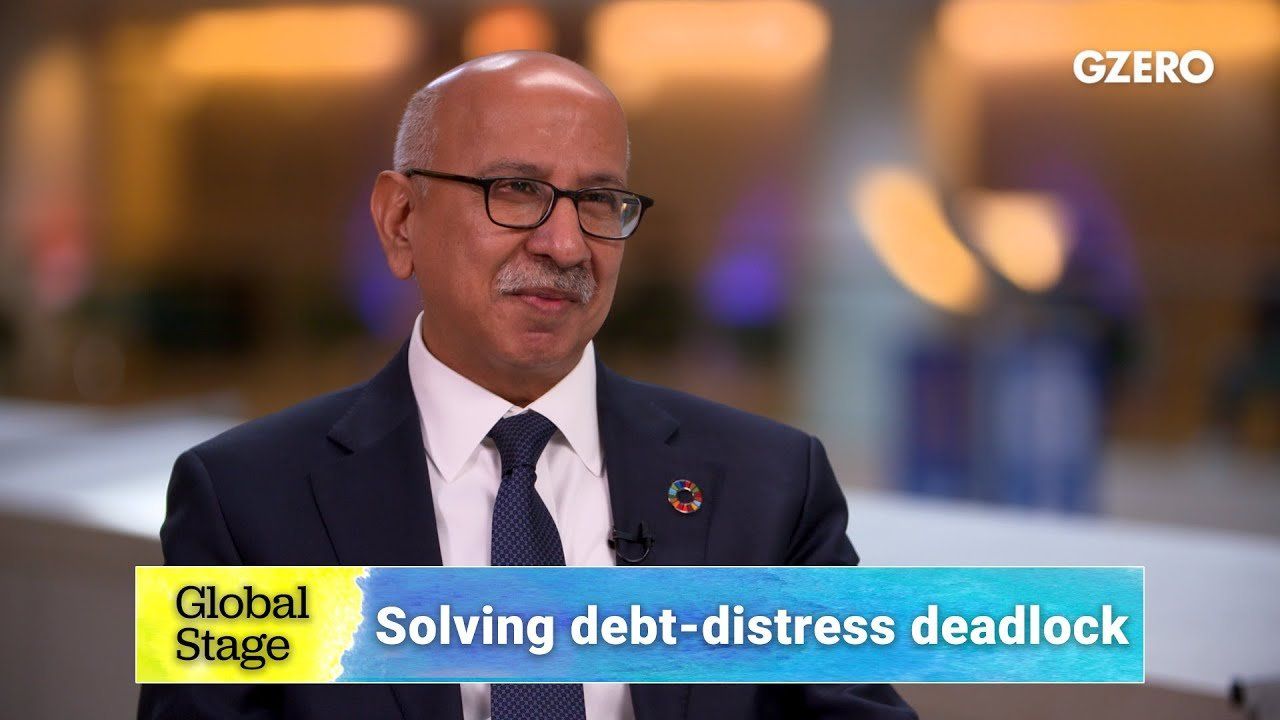Crisis Recovery
Staving off default: How unsustainable debt is threatening human progress

UN assistant sec-gen on importance of addressing the growing debt crisis | GZERO Media

Three-fifths of the world's lowest income countries are debt distressed and in danger of default. Navid Hanif, assistant secretary-general for economic development at the United Nations, tells GZERO's Tony Maciulis that we need to make debt more sustainable by restructuring it. Hanif believes multilateral development banks, such as the World Bank, should offer affordable longer-term loans with lower interest rates to allow least developed countries better opportunities to deal with crises like climate change, poverty, and educating children.
During a conversation at the World Bank/IMF spring meetings in Washington, DC, Hanif explains how a financial divide will eventually become a development divide, which is not good for the world. He explains the urgency of the growing debt problem.
However, Hanif also expresses optimism about the potential for progress coming after years of the pandemic, citing the growth in people gaining access to the internet and a renewed commitment to climate goals.
In this Quick Take, Ian Bremmer addresses the killing of Alex Pretti at a protest in Minneapolis, calling it “a tipping point” in America’s increasingly volatile politics.
Who decides the boundaries for artificial intelligence, and how do governments ensure public trust? Speaking at the 2026 World Economic Forum in Davos, Arancha González Laya, Dean of the Paris School of International Affairs and former Foreign Minister of Spain, emphasized the importance of clear regulations to maintain trust in technology.
Will AI change the balance of power in the world? At the 2026 World Economic Forum in Davos, Ian Bremmer addresses how artificial intelligence could redefine global politics, human behavior, and societal stability.
Ian Bremmer sits down with Finland’s President Alexander Stubb and the IMF’s Kristalina Georgieva on the sidelines of the World Economic Forum to discuss President Trump’s Greenland threats, the state of the global economy, and the future of the transatlantic relationship.